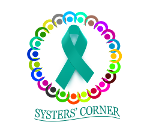Friendship | Positivity | Confidentiality
About PCOS
Polycystic Ovarian Syndrome (PCOS) affects 5% – 10% of women of childbearing age, with less than 50% of women diagnosed, which leaves millions of women undiagnosed.
PCOS is responsible for 70% of infertility issues in women, studies have shown that 40% of patients with diabetes and/or glucose intolerance between the ages of 20 – 50 years have PCOS. It is affecting the lives of over 10 million women worldwide, it is time to take a stand.
What is polycystic ovarian syndrome?
Polycystic Ovarian Syndrome, or PCOS is a common endocrine system disorder that affect women of reproductive age. It is a condition in which a woman’s levels of the sex hormones estrogen and progesterone are out of balance. This leads to the growth of ovarian cysts (benign masses on the ovaries), enlarged ovaries that contain small collections of fluid.
PCOS can cause problems with your periods and make it difficult to get pregnant. Infrequent or prolonged menstrual periods, excess hair growth, acne and obesity can all occur in women with polycystic ovary syndrome.
Polycystic Ovarian Syndrome signs and symptoms often begin soon after a woman first begins having period. In some cases, PCOS develops later during the reproductive years.
PCOS Causes
Doctors don’t know the exact cause of PCOS, but these factors may play a role:
Excess Insulin: Insulin is a hormone produced in the pancreas that allow cells to use sugar (glucose). If you have insulin resistance, your ability to use insulin effectively is impaired, and your pancreas has to secrete more insulin to make glucose available to cells.
Heredity: Genetics plays a role in the causes of PCOS. Women are more likely to develop PCOS if their mother or sister also has the condition.
Androgen: Over production of the hormone androgen may be another factor contributing to PCOS. Androgen is a male sex hormone that women’s body also produce. Women with PCOS often produce higher-than-normal levels of androgen. This can affect the development and release of eggs during ovulation. Excess insulin might also affect the ovaries by increasing androgen production, which may interfere with the ovaries” ability to ovulate.
PCOS Symptoms
PCOS symptoms vary from one woman to the other. The symptoms typically starts soon after a woman begins to menstruate. The most common characteristics of PCOS is irregular menstrual periods. Symptoms tend to mild at first and you may only have a few symptoms or a lot of them. The most common symptoms are:
- Acne
- Weight gain and trouble losing weight
- Extra Hair on the face and body. Often women get thicker and darker facial hair and more hair on the chest, belly and back.
- Thinning hair on scalp, male pattern baldness
- Irregular period. Often women with PCOS have fewer than nine periods a year. Some have no periods. Others have heavy bleeding.
- Fertility Problems. Many women who have PCOS have trouble getting pregnant.
- Anxiety, Depression or mood swings
- Insulin Resistance
- Low Libido
- Pelvic Pain
- Repeat Miscarriage
- Decrease in breast size
- Deeper voice
- Oily skin
- Dandruff
- Skin tags
- Sleep apnea
How Is PCOS Diagnosed?
To be diagnosed with PCOS, your doctor looks for some of the following:
- Irregular Periods: This is the most common characteristics and includes menstrual intervals longer than 35 days; fewer than eight menstrual cycles a year; failure to menstruate for four months or longer; and prolonged periods that may be scant or heavy.
- Excess Androgen: Elevated levels of male hormones (androgens) may result in physical signs, such as excess facial and body hair (hirsutism), adult acne or severe adolescent acne, and male-pattern baldness.
- Polycystic Ovaries: Polycystic ovaries become enlarged and contain numerous small fluid-filled sacs which surround the eggs.
PCOS Complications
Having polycystic ovarian syndrome may make the following conditions more likely, especially if obesity is also a factor:
- Type 2 diabetes
- High Blood Pressure
- Cholesterol and lipids abnormalities, such as elevated triglycerides or low high-density lipoprotein (HDL) cholesterol, the “good” cholesterol
- Metabolic syndrome – a cluster of signs and symptoms that indicate a significantly increased risk of cardiovascular disease
- Nonalcoholic steatohepatitis – a severe liver inflammation caused by fat accumulation.
- Abnormal uterine bleeding
- Cancer of the uterine lining (endometrial cancer) caused by exposure to continuous high levels of estrogen
- Gestational diabetes or pregnancy induced high blood pressure.
PCOS Treatment
Treatment for PCOS is not curative. Treatment focuses on controlling symptoms and managing the condition to prevent complications. The treatment will vary from woman to woman, depending on specific symptoms.
Your first step towards managing PCOS is getting regular exercise, not smoking and having a healthy diet.
If you are overweight, even a small weight loss may help to balance your hormones. This may also start up your menstrual cycle and regular ovulation. If you smoke, give some serious thought into quitting, as women who smoke have higher levels of androgen (male hormones)
Consulting a gynecologist to advice you on the different treatments available will be best in managing PCOS.
